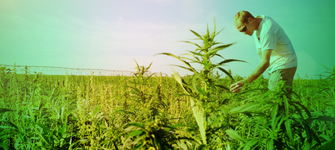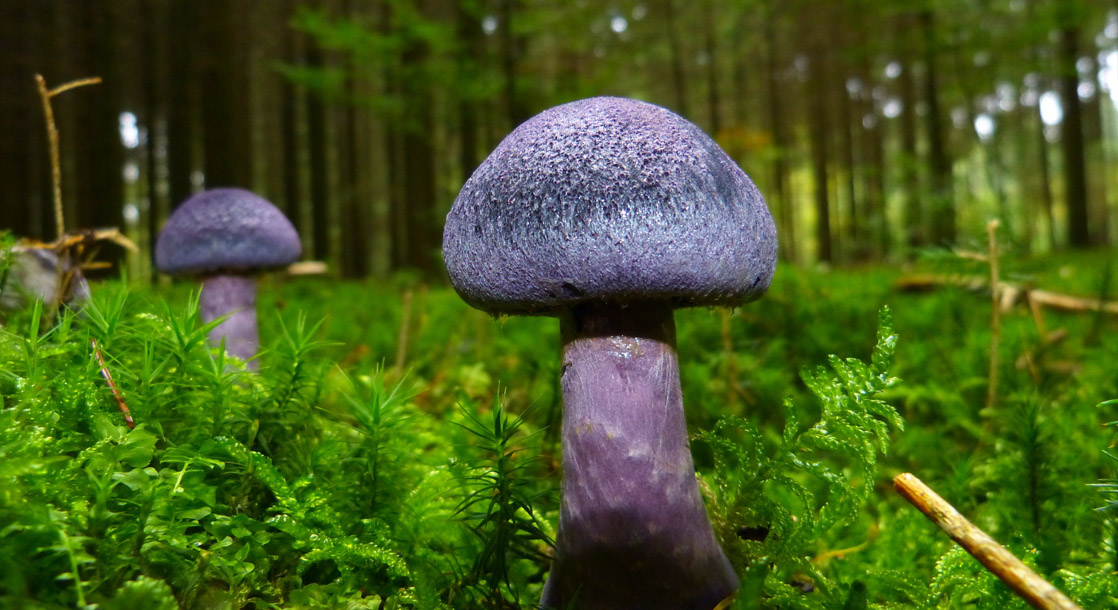Patches of feral hemp that dot the land from sea to shining sea are a remnant of an American staple — the cash crop that once filled over 400,000 beautiful acres across the nation.
For decades, the DEA was convinced that non-psychoactive hemp fields were merely masquerading as a cover for covert cannabis operations. It's reassuring that the federal government is now making the distinction between marijuana and hemp, however, local governments have not made it easy for hemp farmers to get on-board.
On February 7, 2014, POTUS Obama signed The Industrial Hemp Farming Act which allows industrial hemp farms for research. Unless you're an employee of the Department of Agriculture or a University researcher, chances are you aren't going to find much success launching a hemp plantation. A series of hurdles dished out by the DEA and local authorities hampers hemp production in almost any state. So far, 18 states have begun to eliminate barriers that block commercial hemp production.
While recreational cannabis is flourishing in states like Oregon, Washington and Colorado, hemp farmers are left in the loop. I had a chance to speak with Jen Hudyma, who runs Portland-based Urban Fields with her husband.
“My husband and I started our company, Urban Fields, in 2014 and we're now in the process of expanding and hope to apply for a recreational producer license by the end of 2016,” Hudyma told MERRY JANE.
“Our biggest challenges right now are the lack of access to banking, expanding our company without losing focus on our community, and keeping up with the rapidly changing regulations. As the adult-use market comes online, the regulations are making it cost-prohibitive for small growers like us to continue providing product. Our goal at Urban Fields is to continue cultivating top quality, craft cannabis in a sustainable way.”
The new hysteria is centered on cross-pollination. In Oregon, for instance, a hemp plant cannot be grown within 5 miles of a outdoor marijuana field.
Cannabis is usually dieocius, meaning it has distinct male and female individual organisms, and pollination is a genuine threat. Hemp goes to seed quickly and a single hemp plant can corrupt and devastate an entire crop of high-resin cannabis.
Recreational growers are generally territorial over the area surrounding their plot of land. Wind-driven pollen travels only about 100 yards, however, it's impossible to mitigate every instance where pollination could occur.
Edgar Winters (not to be confused with the Edgar Winters Group) is the first person in Oregon to receive a state-issued permit to grow industrial hemp on his 25-acre plot in Eagle Point, Oregon.
He's only missing critical ingredient — seeds. “We are in position to do 40 tons a day at our processing mill,” Winters told the Capital Press.
“We’ve got our ducks in a row.” Winters was denied seeds from Hemp Textiles International, a Canadian seed provider. Importing hemp seeds requires the approval from the DEA.
The process can be excruciating. The Oregon Department of Agriculture and Oregon State University are working together to come up with a solution. Meanwhile, Winters is looking into importing hemp seeds all the way from Russia, Hungary, Australia or New Zealand.
“We have to import to get started,” Winters said.
“We don’t want our farmers to sit around another year.” Oregon legalized hemp cultivation clear back in 2009, but it was never realized until recreational cannabis took place in November 2014.
California redefined hemp as a legal cash crop with The California Industrial Hemp Farming Act of 2013. It's ironic that both prohibitionists and medical cannabis operations want to prevent hemp farms from opening up. "I call it a wraparound coalition — you have a far-left and far-right and their interests do coincide on some issues and hemp is one of them, said Patrick Goggin, a San Francisco-based hemp lawyer. “It's very symbolic of these types of coalitions."
Colorado reaped the first hemp harvest in 60 years in 2013. The title goes to Springfield Colorado-based farmer Ryan Loflin. Kentucky—one of the rare states to allow imported seeds—won a provision which prevents drug officials from interfering with hemp research and development last April. The state of Kentucky is currently the number one hemp producer in the United States.
The Association of Official Seed Certifying Agencies(AOSCA) is a global agricultural agency. AOSCA issued its Industrial Hemp Seed Certification Regulations—the same policies that Health Canada uses. The AOSCA requires a range of “a minimum distance of three (3) feet to a maximum distance of three (3) miles between different pedigrees and cultivars of industrial hemp.” The AOSCA recommends that different varieties of cannabis be separated by 5,000 meters.
Both hemp and high-resin cannabis farmers can coexist in legal states with the implementation of good farming practices which are outlined by a variety of organization.











